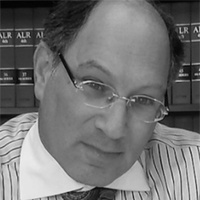 Street Criminal Lawyers, Maryland
Street Criminal Lawyers, Maryland
Sponsored Law Firm
-
 x
x

Click For More Info:
-
Isaac Klein Attorney at Law
1 N Charles Street Suite 350 Baltimore, MD 21201» view mapAccident & Injury Law You Need Isaac To Defend You!
Issac Klein has been serving the citizens of Maryland since opening his practice in 1982. If your claim cannot be settled for a fair amount, he can prepare to file suit and go to trial.
800-768-4560
Lawyers
<
11-16 of 16 matches
Traffic, Transportation & Shipping, Criminal, Corporate
Accident & Injury, Criminal, Trusts, Government, Social Security
Traffic, Domestic Violence & Neglect, DUI-DWI, Criminal
Accident & Injury, Bankruptcy & Debt, Criminal, Divorce & Family Law



 Isaac Klein Baltimore, MD
Isaac Klein Baltimore, MD Practice AreasExpertise
Practice AreasExpertise